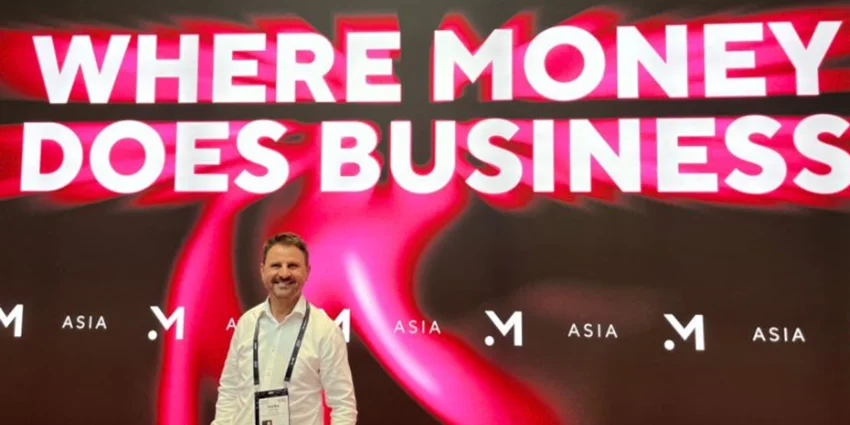Insights from Money 2020 Asia 2024
Money2020 returned to Asia this year in Bangkok at the beautiful Queen Sirikit National Convention Centre.
The Assistant Governor of the Bank of Thailand, Miss Daranee Saeju provided the opening address highlighting that 60% of the world population is in Asia and by 2030 this region will be the biggest Fintech region in the world.
Miss Saeju explained how the future of banking in Thailand is based on Open Infrastructure, Open Data and Open Competition.
The QR code PromptPay real-time payments system was highlighted as a major success story since launching in the country in 2016. PromptPay now processes 47 trillion Bhat of transactions annually (~U$1.3 trillion) across all types of merchants including restaurants, hotels, tours and even tuk-tuk drivers.
On the back of this domestic success story, cross border payment arrangements have now been put in place with Cambodia, Hong Kong, Indonesia, Laos, Singapore and Vietnam to promote faster and lower cost intra-regional payment flows.
Strong fintech-bank collaboration was on display all over the event as demonstrated by Kasikornbank’s JV with Line Bank of Taiwan and MUFG’s investment in Grab.
Emerging forms of money were also topics of discussion with CBDC’S (Central Bank Digital Currencies), digital assets and cross border providers such as Ripple highlighting solutions.
Bringing Open Banking and wider Open Finance more widely to Asia featured in several sessions. Many speakers rightly explained that standardising regulation and protocols across 46 Asian markets is a herculean task. However, that should not stop the industry moving forward to bring data sharing solutions to market.
The amount of cross border payment suppliers participating at the conference was astounding and it left me wondering how will sector participants differentiate themselves over the long-term.
Banking as a Service (Baas) was also discussed on several panels with consumers ultimately driving banks to implement this enhanced technology based on consumer experiences they are experiencing elsewhere such as Netflix and Airbnb.
One message I took away from the conference is Gen Z (<30 years old) and Gen Alpha (<20 years old) who are the future banking industry customers have new emerging requirements. These demographic segments have grown up with their mobile phone almost part of their body, so mobile device protection, and cyber insurance (i.e. Reinstating a hacked Instagram profile) are becoming key banking App requirements for this customer cohort.
There was an interesting discussion around how new digital bank market entrants can be competetive by focusing on viable business segments of the banking industry from the get go. Alex Bank (Australia), Trust Bank (Singapore) and WeLab (Hong Kong), eloquently explained their strategies to grow in saturated markets.
There was a fascinating session on the creator economy and how influencers now need emerging global payment receipt capabilities. Personally, I believe there is still space for a blockchain based social network application where the user really does own their data and friends/followers and where they are able to transfer this data between platforms of their choice.
AI (Artificial Intelligence) was also under discussion, with ensuring complex decisions being explainable becoming a key consideration for organisations. Many people were still talking about theoretical use cases for AI.
If you are in Sydney and would like to see real life use cases of how you can use AI to accelerate corporate banking sales, please join my collaboration with Microsoft next month here.
Several Government regulators were also in attendance and the Hong Kong Monetary Authority gave a great overview of their CBDC projects. I’m still however a little unsure what problems these Central Banking Digital Currency initiatives are really solving. Are you?
These sessions however made me revisit an article I wrote on how data from the ‘real world’ can be integrated into the decentralised Blockchain world. You can read more here.
Many attendees were interested in the ‘Realise the Revenues’ sales program to win more corporate customer business.
‘Thinking like a Banker’ also gained strong interest from companies looking to sell more effectively into financial services by understanding better how banks think and make decisions. My few days in Bangkok confirmed to me that things are moving even faster, competition is fiercer, collaboration and partnerships are more important and learning new ways to generate growth is table stakes.


